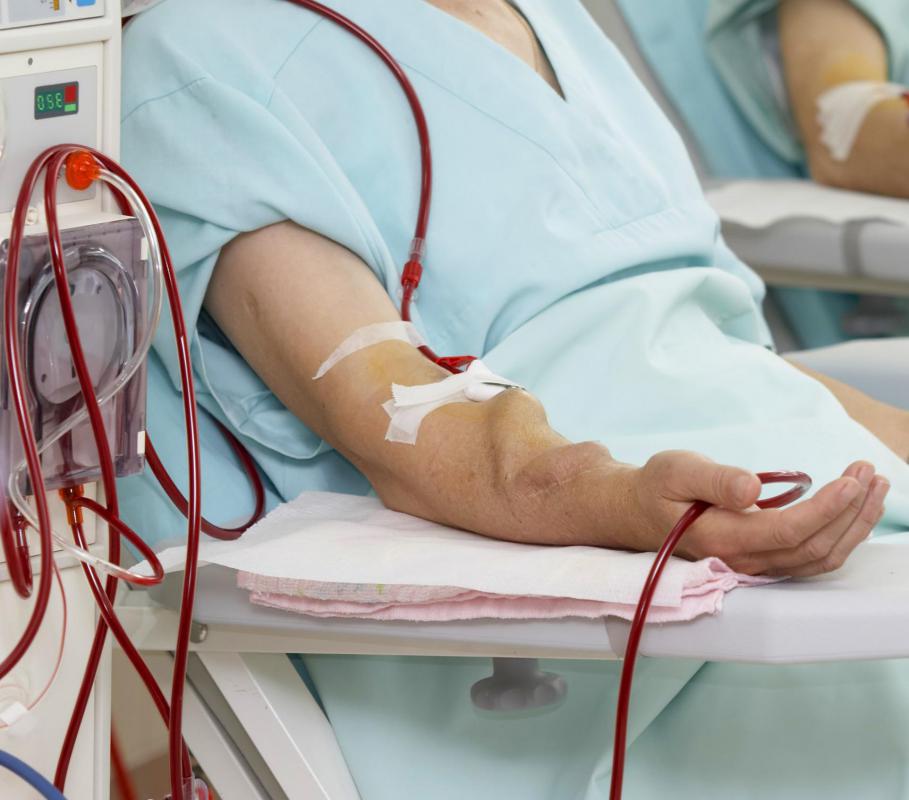At WiseGEEK, we're committed to delivering accurate, trustworthy information. Our expert-authored content is rigorously fact-checked and sourced from credible authorities. Discover how we uphold the highest standards in providing you with reliable knowledge.
What are Hyperkalemia Symptoms?
Hyperkalemia is classified as asymptomatic, meaning there are no major symptoms associated with it. There are, however, numerous minor hyperkalemia symptoms that may occur. Hyperkalemia symptoms can include nausea, irregular heartbeat, muscle weakness, and fatigue. Some patients have also reported tingling sensations in their extremities and a decreased pulse rate.
Simply put, hyperkalemia is an increased concentration of potassium in the bloodstream. It can be caused by a number of other illnesses, including kidney failure, adrenal gland disorders, and diabetes. Hyperkalemia can also be triggered by a diet too rich in potassium and is a side effect of some prescription medications, particularly beta blockers and diet pills. Stand-alone hyperkalemia is fairly simple to cure and is often short-term in nature; however, hyperkalemia as a result of other more complex diseases may need long-term management.

Hyperkalemia symptoms are typically centered around the bodily functions that proper potassium levels help to regulate. Nausea is one of the most common hyperkalemia symptoms due to the fact that potassium is a key factor in maintaining a healthy digestive system. Potassium is also responsible for keeping muscle tissue healthy, hence the fact that muscle weakness is another of the prime hyperkalemia symptoms. Homeostasis is another process regulated by proper potassium levels that involves controlling many of the chemical and electrical reactions in the body. This is why hyperkalemia symptoms such as irregular heartbeats, tingling sensations, fatigue, and low pulse rates can occur.

The disorder is typically short-term and often treated with diet modifications or prescription medication. Patients suffering from elevated potassium levels should first eliminate any high-potassium items from their diets, such as bananas, oranges, and tomatoes, and cease taking any potassium supplements. For more severe cases where hyperkalemia symptoms are more constant, doctors may elect more drastic treatments, including insulin and calcium injections, bicarbonate therapy, or even dialysis. Long-term treatment for hyperkalemia often involves the use of a diuretic, or water pill, to help aid the body in flushing out excess potassium on a regular basis.

In order to prevent hyperkalemia from occurring, there are several steps than can be taken. If taking medications that can potentially affect potassium levels in the body, it is recommended individuals have blood work done on a regular basis to monitor potassium levels in the blood and adjust dosages if needed. It is also said that following a properly balanced diet that is neither too high or too low in potassium can help keep levels balanced. Proper hydration is also a key factor, as hyperkalemia tends to thrive best when the body is dehydrated.
AS FEATURED ON:
AS FEATURED ON:

















Discuss this Article
Post your comments